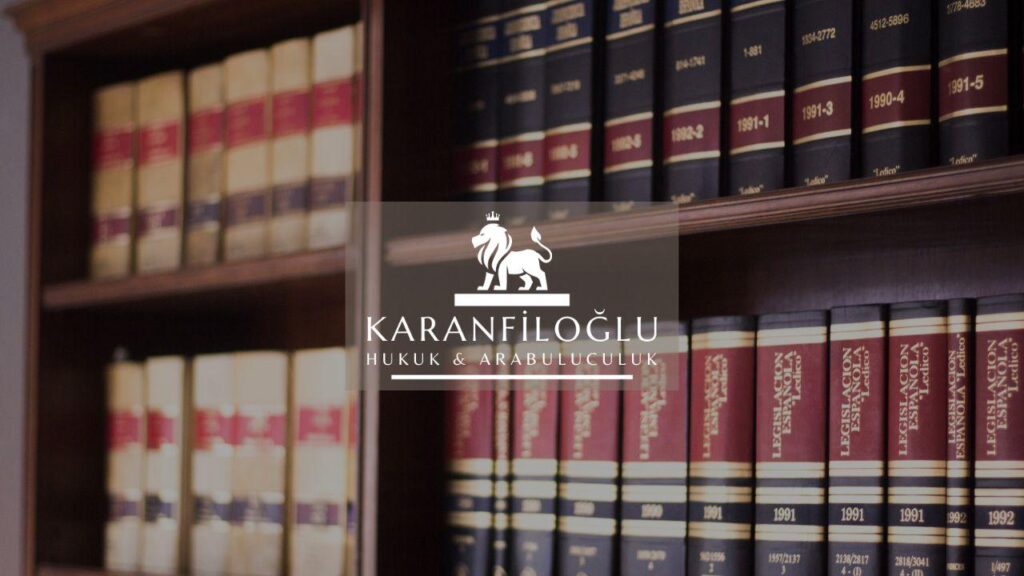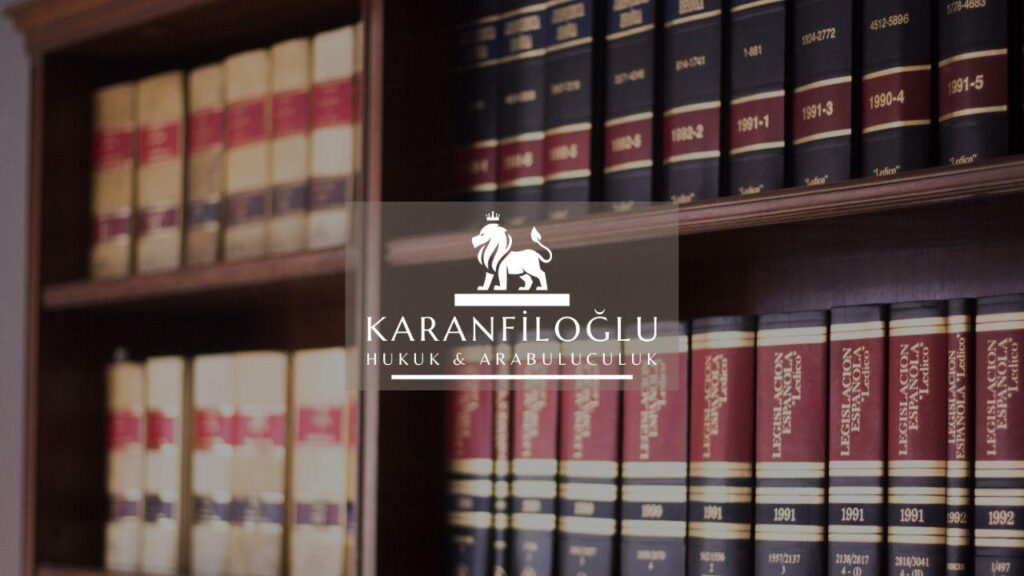Navigating housing disputes in Turkey requires a comprehensive understanding of the relevant legal framework and services provided by experienced professionals, such as those at Karanfiloglu Law Office. Under Turkish Law, the key regulations governing housing disputes include the Turkish Code of Obligations (Law No. 6098), particularly Articles 299-377, which detail the rights and obligations of landlords and tenants. Additionally, the Turkish Law on Property Ownership (Law No. 634) addresses issues surrounding property management and ownership rights. For those unfamiliar with these regulations, resolving conflicts can be daunting, often necessitating legal assistance to ensure proper adherence to procedures and to protect one’s interests effectively. At Karanfiloglu Law Office, our seasoned legal experts possess in-depth knowledge of these laws and offer tailored guidance to achieve favorable outcomes in housing disputes, making the resolution process more manageable for our clients.
Understanding Turkey’s Housing Laws and Regulations
Understanding Turkey’s housing laws and regulations is crucial for both landlords and tenants to protect their rights and interests. The Turkish Code of Obligations (Law No. 6098), particularly Articles 299-377, delineates essential aspects such as the terms of leasing agreements, rent adjustments, maintenance responsibilities, and conditions for terminating leases. Additionally, the Turkish Law on Property Ownership (Law No. 634) governs issues related to joint property ownership and the administrative framework of housing cooperatives and apartment buildings. Familiarity with these provisions not only ensures compliance but also empowers parties to address potential disputes more effectively. Whether you are dealing with rent arrears, eviction procedures, or maintenance concerns, understanding these laws is the first step in achieving a fair resolution.
When disputes arise between landlords and tenants, the Turkish legal system offers several mechanisms for resolution, prioritizing amicable solutions before judicial intervention. Mediation, which is mandated under Turkish Law for many disputes (Law No. 6325 on Mediation in Civil Disputes), serves as an initial step, encouraging parties to reach an agreement outside of court proceedings. Should mediation fail, the parties may proceed to litigation, where both the tenant and landlord can present their case in court. Articles 200-242 of the Turkish Code of Civil Procedure (Law No. 6100) outline the procedural aspects for such disputes, including the admissibility of evidence and the timeline for hearings. Leveraging the expertise of legal professionals from Karanfiloglu Law Office during these proceedings can significantly enhance the likelihood of securing a favorable outcome, ensuring all procedural nuances and legal requirements are meticulously adhered to.
At Karanfiloglu Law Office, our team is dedicated to guiding clients through the complexities of housing disputes in Turkey with precision and expertise. We offer comprehensive legal services tailored to the specific needs of landlords and tenants, ensuring that our clients fully understand their rights and obligations under Turkish Law. By engaging our services, clients benefit from seasoned legal counsel well-versed in the Turkish Code of Obligations (Law No. 6098) and the Turkish Law on Property Ownership (Law No. 634). Our experts not only provide representation during mediation and litigation but also offer strategic advice to prevent disputes before they escalate. Navigating the legal landscape with Karanfiloglu Law Office ensures a more manageable and less stressful resolution process, fostering fair and equitable outcomes in every housing dispute.
Steps to Resolve Housing Disputes Out of Court
One effective approach to resolving housing disputes out of court in Turkey is mediation, an option encouraged under Article 17 of the Turkish Mediation Law (Law No. 6325). Mediation serves as a cost-effective and time-saving alternative to litigation, allowing parties to negotiate and reach a mutual agreement with the assistance of a neutral third-party mediator. It is particularly useful in landlord-tenant disputes where both parties are willing to compromise. At Karanfiloglu Law Office, our legal team facilitates mediation by preparing clients thoroughly, ensuring they understand their rights and obligations under the Turkish Code of Obligations and the Turkish Law on Property Ownership. This preparatory step often leads to successful resolutions, preserving relationships and reducing the emotional strain typically associated with court proceedings.
Beyond mediation, another beneficial method for resolving housing disputes out of court is through arbitration, as stipulated under Article 412 of the Turkish Code of Civil Procedure (Law No. 6100). Arbitration involves appointing an arbitrator or a panel to make binding decisions based on the evidence and arguments presented by both parties. This process is particularly advantageous for complex disputes requiring specialized expertise and aims to provide a faster resolution than traditional court litigation. Karanfiloglu Law Office’s adept arbitration lawyers ensure a comprehensive review of the case, meticulously preparing submissions and representing clients effectively throughout the arbitration process. By leveraging our firm’s deep understanding of Turkish property and obligations law, clients can achieve fair and expedient outcomes while avoiding the often protracted timelines associated with court proceedings.
In addition to mediation and arbitration, settlement negotiations facilitated by skilled legal counsel can be another effective means to resolve housing disputes outside court. Under the guidance of experienced attorneys from Karanfiloglu Law Office, parties can engage in constructive dialogue aimed at reaching an amicable settlement. This approach allows for more flexibility and creative solutions tailored to the specific needs and interests of both parties, reducing the risk of prolonged conflict. By leveraging our thorough understanding of Articles 299-377 of the Turkish Code of Obligations and relevant provisions of the Turkish Law on Property Ownership, our legal team can structure settlement agreements that safeguard our clients’ rights while ensuring compliance with all applicable regulations. This proactive and client-focused strategy helps mitigate disputes efficiently, often restoring harmony and preserving the client’s time and resources.
When to Seek Legal Assistance in Housing Conflicts
In housing conflicts, seeking legal assistance early can prevent escalation and safeguard your rights. Under Articles 315 and 316 of the Turkish Code of Obligations (Law No. 6098), timely legal intervention is crucial if disputes over rental payments or property damage arise. Early legal advice can also be pivotal in instances where there is non-compliance with tenancy agreements or illegal eviction attempts. The Turkish Law on Property Ownership (Law No. 634) further highlights the importance of obtaining legal counsel, especially in resolving complex issues of shared property rights and management disputes. At Karanfiloglu Law Office, we advise clients to consult with our experienced lawyers at the first sign of any housing dispute to ensure their interests are robustly protected, and conflicts are resolved efficiently.
When landlord-tenant relationships deteriorate, complexities such as eviction procedures or disputes over deposits frequently arise. Under Article 350 of the Turkish Code of Obligations (Law No. 6098), landlords must follow specific legal steps to evict tenants, such as providing proper notice and obtaining a court order if necessary. Conversely, tenants have the right to contest unlawful eviction attempts and seek compensation for any damages incurred, as stipulated under Article 355. Similarly, deposit disputes often require legal interpretation to determine whether the conditions for its return have been met, as defined in Article 342. At Karanfiloglu Law Office, our legal team is well-versed in navigating these intricacies and can provide the expert guidance you require to safeguard your interests, ensuring compliance with the legal framework and minimizing stress during contentious landlord-tenant interactions.
Moreover, disputes relating to maintenance responsibilities and property conditions are common triggers for seeking legal assistance. Articles 319 and 331 of the Turkish Code of Obligations (Law No. 6098) outline the obligations of both landlords and tenants in maintaining the rental property. Landlords are required to ensure the property remains habitable and safe, while tenants must use the premises responsibly. Conflicts often arise when either party neglects these duties, necessitating legal intervention to determine liability and enforce compliance. In addition, page-holders’ disagreements over shared property expenditures, as defined under Article 18 of the Turkish Law on Property Ownership (Law No. 634), often require judicial resolution. By engaging the experienced legal team at Karanfiloglu Law Office, clients are assured of thorough representation in addressing these maintenance and property condition disputes, aiming for fair settlements and the preservation of harmonious living arrangements.
Disclaimer: This article is for general informational purposes only and you are strongly advised to consult a legal professional to evaluate your personal situation. No liability is accepted that may arise from the use of the information in this article.







